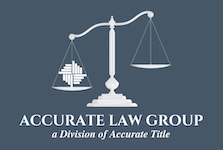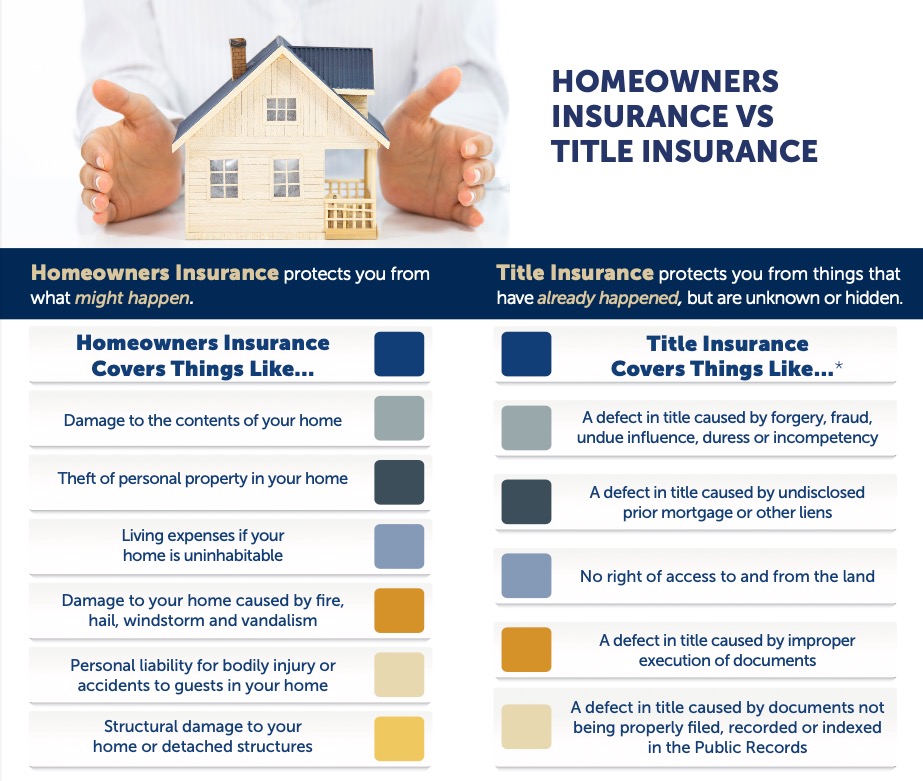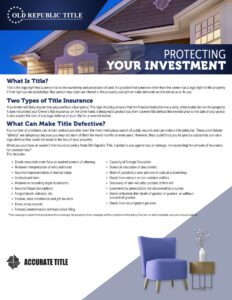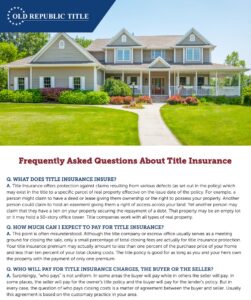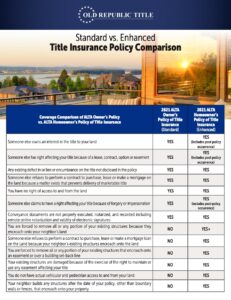A. You may not know the owner as well as you think you do. People undergo changes in their personal lives that may affect title to their property. People get divorced, change their wills and engage in transactions that limit the use of the property and have liens and judgments placed against them personally for various reasons.
There may also be matters affecting the property that are not obvious or known, even by the existing owner, which a title search and examination seeks to uncover as part of the process leading up to the issuance of the title policy.
Just as you wouldn’t make an investment based on a phone call, you shouldn’t buy real property without assurances as to your title. Title insurance provides these assurances.
The process of risk identification and elimination performed by the title companies, prior to the issuance of a title policy, benefits all parties in the property transaction.
Title Insurance minimizes the chances that adverse claims might be raised, and by doing so reduces the number of claims that need to be defended or satisfied. This process keeps costs and expenses down for the title company and maintains the traditional low cost of title insurance.

